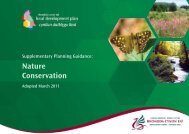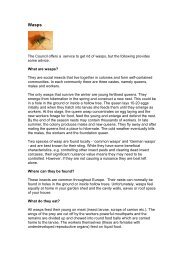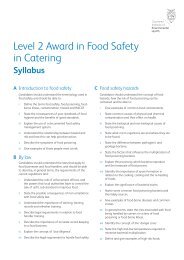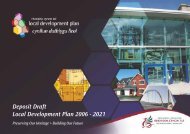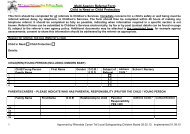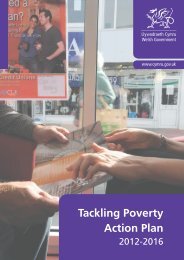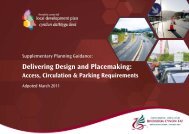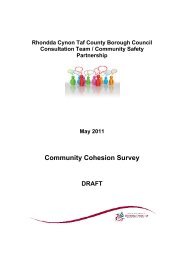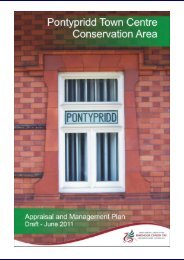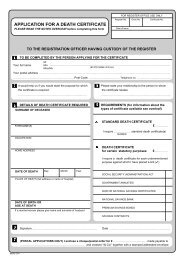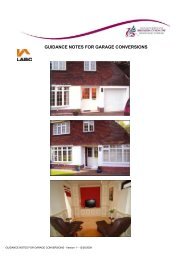Cynllun Iaith Gymraeg - Rhondda Cynon Taf
Cynllun Iaith Gymraeg - Rhondda Cynon Taf
Cynllun Iaith Gymraeg - Rhondda Cynon Taf
- No tags were found...
You also want an ePaper? Increase the reach of your titles
YUMPU automatically turns print PDFs into web optimized ePapers that Google loves.
• The Council will approach the Welsh Language Board’splace name consultation service for advice on thestandardised forms of place names.• For all new developments, streets and geographical locations,adoption of Welsh names will be promoted. Existing streetnames will respect the local character and traditions of thearea. Where the difference between Welsh and English ismerely spelling, the Welsh Language Board’s ConsultativeService on Place-names will be consulted.• Where bilingual signs exist or where separateEnglish and Welsh signs are provided, the size,quality, legibility and prominence of text will respectthe principle of equality.4.3 Publishing and Printing Materials for the PublicWhen the Council prints and publishes material for the public,its standard practice will be to do so bilingually. Documents tobe published bilingually include those which generally areissued or made available to the public and:• provide information on the Council's services• explain and give guidance on Council policies, initiatives,developments and new services• seek views of the public through a consultation exercise: e.g.surveys and questionnaires whether written, face-to-face oron-line• issue specific information on aspects of services providedfor the public.Publications to be issued bilingually include leaflets, pamphlets,booklets, circulars, certificates and posters, as well as printeditems such as licences, rent cards / books, cards, tokens andtickets. Should it prove impracticable to produce a fullybilingual version, items will have an appropriate bilingualsummary. The aim will be for these publications to be equallyaccessible. However, large and / or complex documents whichare technically detailed such as planning consultationdocuments and, therefore, unlikely to be of interest to thepublic generally will continue to be issued in English only,unless they are of particular interest to the Welsh speakingcommunity on a specific issue, e.g. bilingual education.Publications will be produced with Welsh and English versionstogether in one document, preferably side by side or withEnglish above or before the Welsh (or the Welsh above orbefore the English as is most practical on special occasionsshould they arise), or the Welsh and English may be producedback to back in the same document.Bilingual documents will be the standard but in afew cases where it is impractical or the contents isof a technical nature and of limited public interestthere may be reason to produce in English onlywith a separate Welsh version. In addition to thecriteria set out above, the Council (that is thecommissioning officer together with the Head ofthe Translation Unit) will consider such mattersas the size and nature of the target audience,the size and nature of the document, and howwidely it will be distributed and likely demand.In such cases a statement must be included asfollows:“This is deemed to be a technical documentof limited public interest and has thereforebeen produced in English. A Welsh version,however, can be made available onrequest.”Guidance on the policies and proceduresfor dealing with bilingual publications hasbeen produced for staff, externaldesigners and publishers. It includesconfirmation of the types andcategories of publications that willalways be bilingual, that may bepublished in separate languageversions and those that will be amatter for individual consideration,together with advice on the layoutand design of bilingualdocuments.





